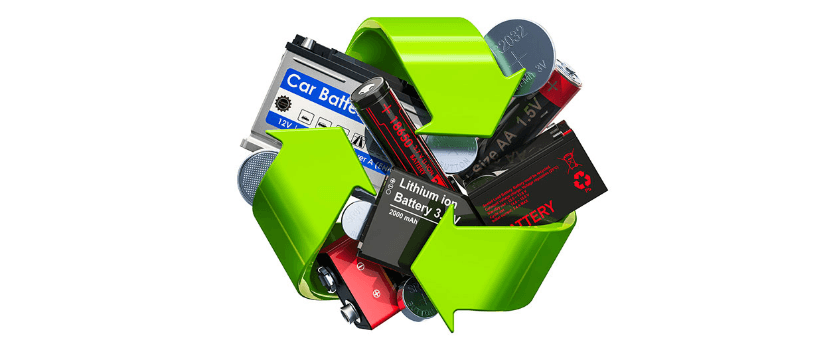In today's fast-paced world, lithium-ion batteries power a vast array of devices, from smartphones to electric cars. While these batteries are incredibly efficient and long-lasting, they eventually reach the end of their lifespan. Disposing of lithium-ion batteries requires care and responsibility to protect our environment and ensure a sustainable future. In this informative article, we will answer key questions and provide practical solutions on how to dispose of lithium-ion batteries responsibly.
Can you put lithium-ion batteries in the bin?
No, you should never toss lithium-ion batteries in the regular trash or recycling bin. Doing so can have detrimental effects on the environment. Here's why:
-
Environmental Impact: Lithium-ion batteries contain toxic materials, including lithium, cobalt, and nickel. When disposed of improperly, these substances can leak into the soil and groundwater, contaminating ecosystems.
-
Fire Hazard: Lithium-ion batteries can pose a fire risk when damaged or exposed to extreme temperatures. Placing them in the trash can lead to fires at waste facilities, endangering workers and releasing harmful pollutants into the air.
-
Waste of Resources: Throwing away lithium-ion batteries is a waste of valuable resources. Many of the materials in these batteries can be recycled and reused.

Is lithium safe to dispose of?
While lithium is a naturally occurring element, it can be harmful if not disposed of properly. Here's how to ensure the safe disposal of lithium-ion batteries:
-
Recycling Centers: The safest and most environmentally responsible way to dispose of lithium-ion batteries is to take them to a dedicated battery recycling center. Many communities have drop-off locations for recycling batteries, making it convenient for residents.
-
Retailer Programs: Some electronics retailers and manufacturers offer battery recycling programs. They may provide collection bins in their stores or accept old batteries when you purchase new ones. Check with your local electronics store to see if they participate in such programs.
-
Mail-In Recycling Services: Several organizations offer mail-in battery recycling services. They provide prepaid shipping labels, making it easy to send your old batteries for proper disposal.
Are lithium batteries hazardous waste?
Yes, lithium-ion batteries are considered hazardous waste when not disposed of correctly. To minimize the risks associated with lithium-ion battery disposal, follow these guidelines:
-
Keep Batteries Intact: Store used batteries in a cool, dry place, and avoid puncturing, crushing, or otherwise damaging them. Damaged batteries are more likely to leak hazardous chemicals.
-
Label and Sort: If you have multiple types of batteries to dispose of, label them accordingly and separate them into different containers. This ensures that each battery type undergoes appropriate recycling processes.
-
Educate and Encourage: Spread awareness about responsible battery disposal among your friends, family, and community. Encourage others to recycle their batteries by sharing the importance of eco-friendly practices.
By following these steps and encouraging responsible battery disposal, you can contribute to a greener, more sustainable future. Remember, every small action counts when it comes to protecting our planet.
In conclusion, disposing of lithium-ion batteries responsibly is essential to safeguard our environment and conserve valuable resources. Instead of throwing them in the trash, make an effort to recycle your used batteries through dedicated recycling centers, retailer programs, or mail-in services. By doing so, you are taking a significant step towards a more eco-friendly lifestyle and helping to create a better world for future generations.










